Portugal Road Trip Guide
Introduction
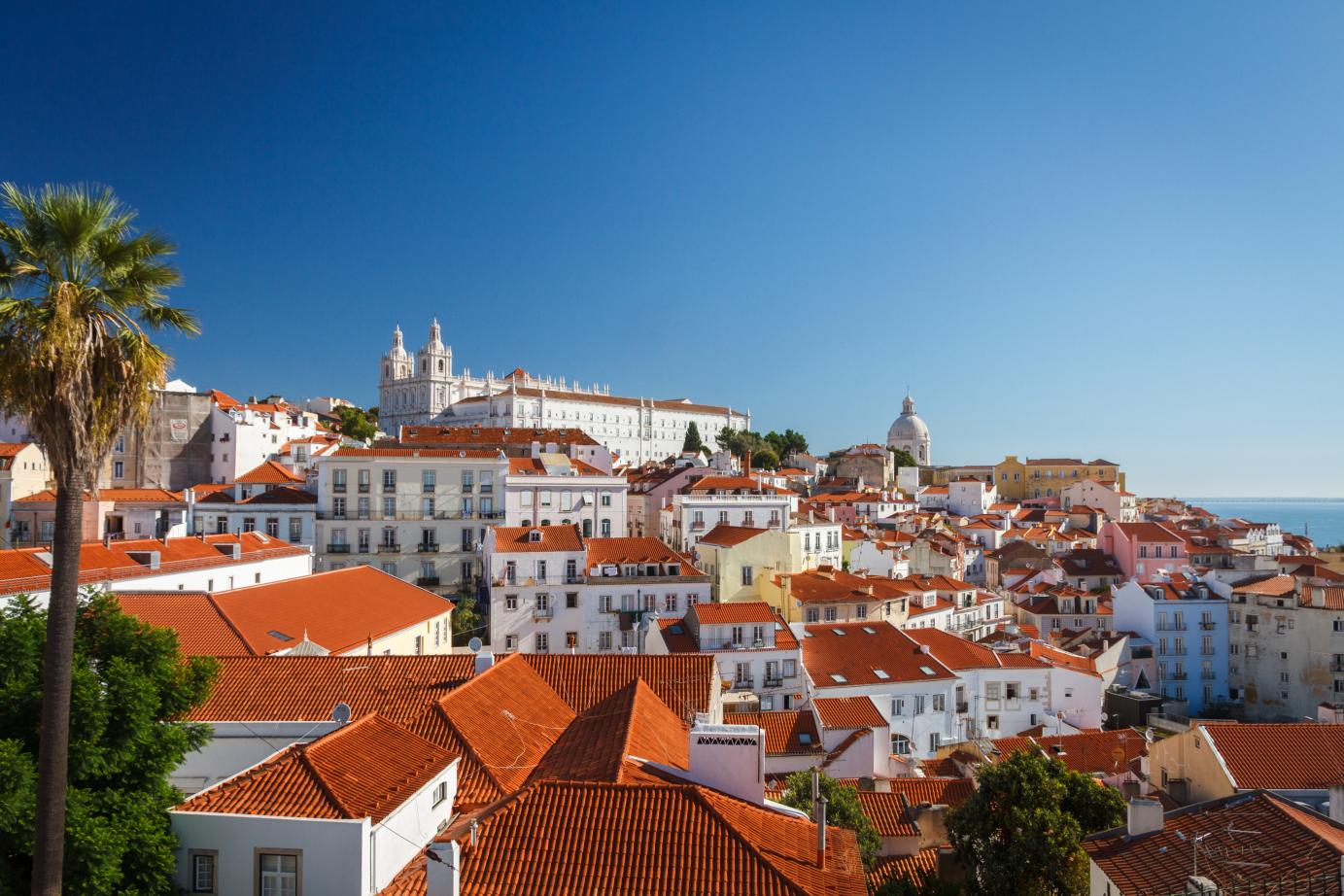
Portugal, with its rich cultural tapestry and stunning natural vistas, stands as a beacon for those seeking a self-drive adventure. Picture yourself navigating through Lisbon’s bustling streets, tasting the rich history nestled in Porto’s riverfront, and sunbathing along the Algarve’s golden beaches. The journey continues with the enchanting palaces of Sintra and the lush vineyards of the Douro Valley, each stop more captivating than the last. Opting for a self-drive tour offers unparalleled freedom and the chance to truly savor Portugal’s beauty and heritage at every turn. Let the open road be your guide to the heart of this marvelous country.
Car Rental Tips
Book in Advance
Generally, we recommend that you make your reservation one month in advance so that you could choose the desired vehicle and date.
If you proceed directly to the car rental store without a booking, it is likely that the car you need might be unavailable.
If you are already a QEEQ diamond member, you only need 1$ to freeze your booking and make the rest of the payment before pick-up, which does not affect your credit card limit.
Required Documents
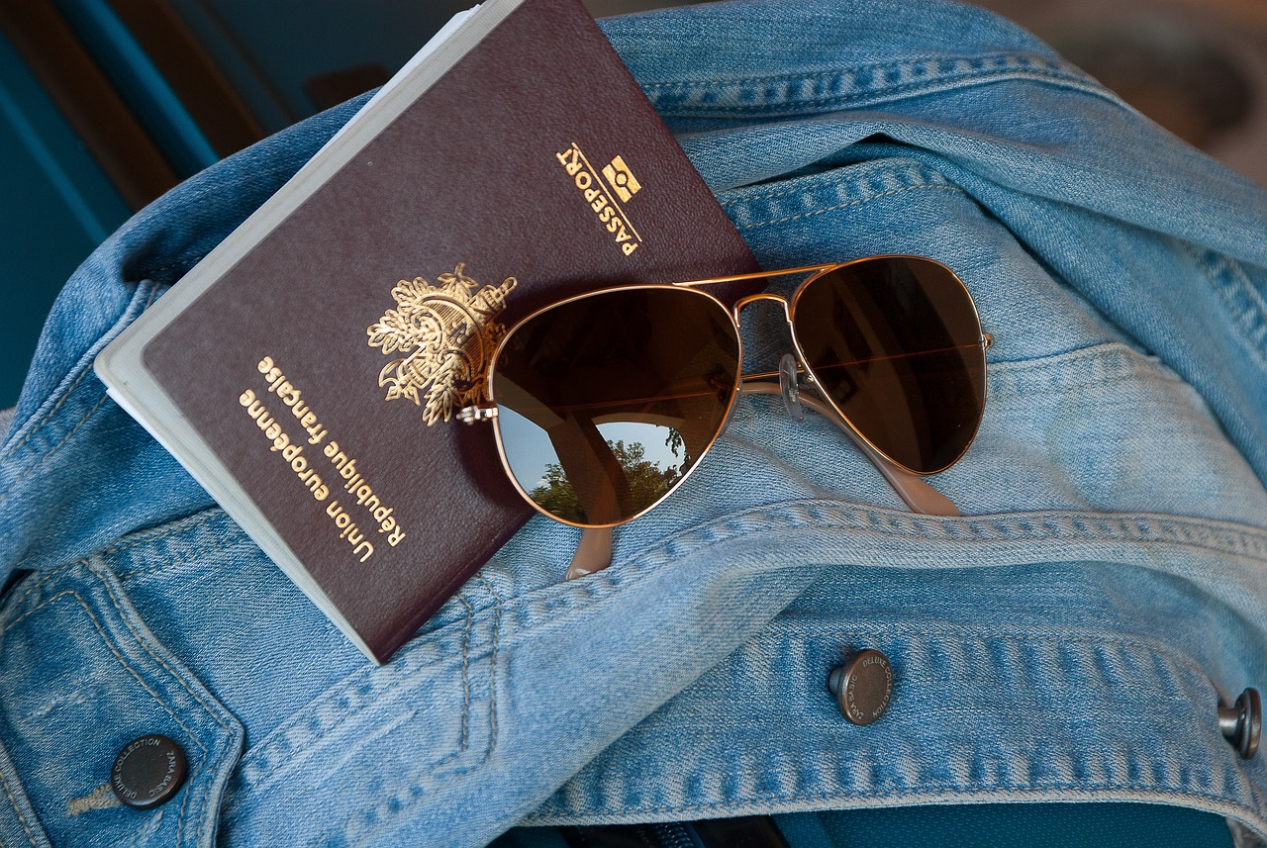
Passport, Driver’s License, IDP (Optimal), Credit Card
International Driving Permit (IDP) is highly recommended, which allows you to drive legally in countries that need one.
If it is inconvenient for you to apply an IDP, generate a free driver’s license translation on QEEQ.com (Japanese site only).
Tips: Please be aware that most rental companies require drivers to have held their license for at least one year. Additionally, some companies have age restrictions, and drivers under a certain age may need to pay a young driver fee.
Car Choices
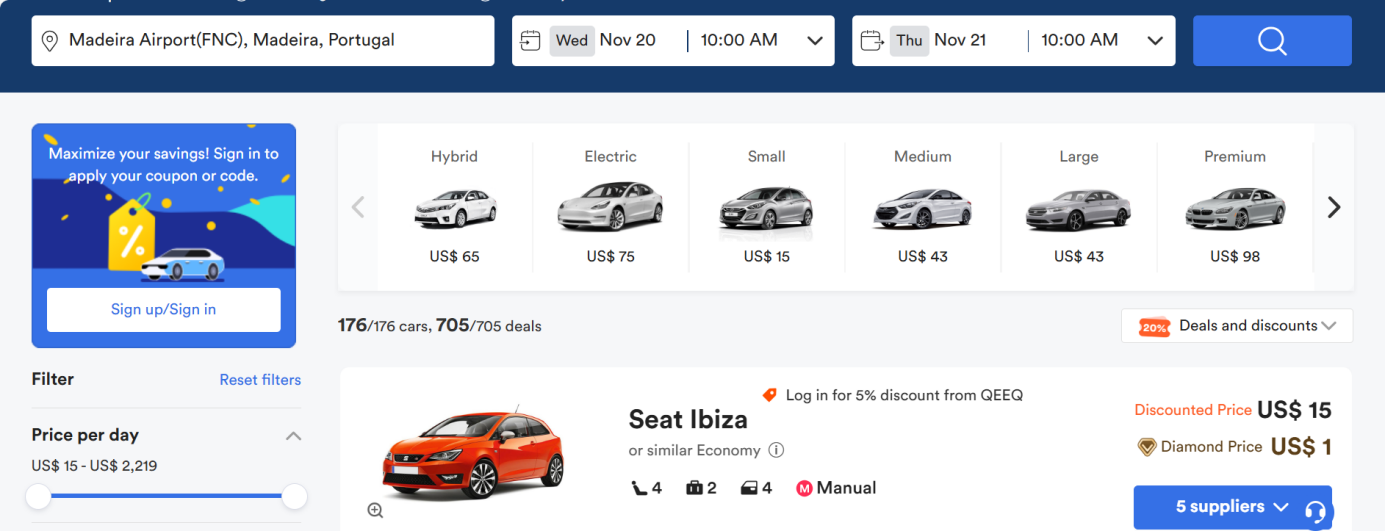
The choice of your car depends largely on the duration of your trip, passenger number, luggage amount and road conditions.
- City Driving for small groups (1-3 passengers)
If you are a couple, or travel with a friend or two, or if you travel alone, a reasonably priced small car would be a good choice.
Compact size cars have 4 to 5 seats. We recommend sparing one passenger capacity so you could relax and have more space.
- 4 to 5 passengers including children and elderly
Medium and large size cars are recommended. These models could still possess a fair mount of space with 2 to 3 suitcases. SUVs are suitable for hybrid road conditions. Eco-friendly cars such as the Prius could save your spend on gasoline. Choose what you need giving you peace of mind on long trips.
- Traveling in a group of 6 or more
It would be a wonderful experience to choose a van for everyone to have his or her own seat. These models accommodate a passenger capacity from 7 to 12 people. While it is noticeable that large cars cannot make quick and sharp turns. So we recommend renting two small or medium-sized cars if you spend a lot of time driving through towns.
Online Booking Process
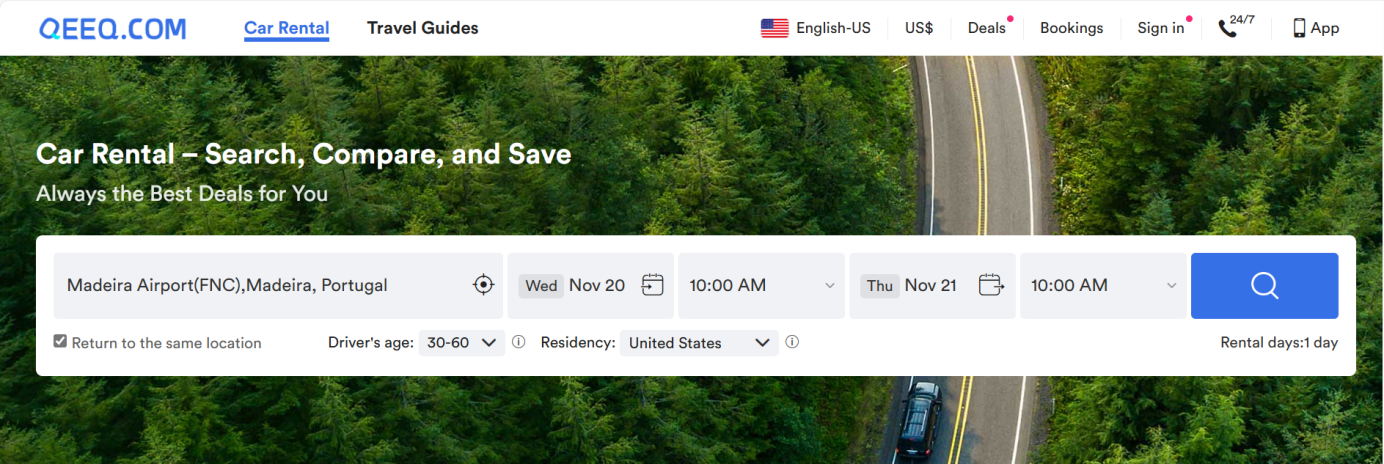
We are endeavoring to make your booking as convenient as possible. Enter our website QEEQ.COM, log in, enter the required information, and follow the instructions, you are free to rent your desired car.
Insurance
What Insurances Are Available?
*For Autopilot Cars:
- Insured: Protection for the person renting the car, including passenger accident insurance and personal accident insurance (PAI). This includes the personal safety of the driver, passengers, and their personal belongings.
- Automobile Insurance: protection for the vehicle of the renter. Collision Damage Waiver (CDW) is one example.
- Third-party Insurance: insurance that protects third parties other than the renter and the car rental company. Basic Third Party Liability (BTL) insurance, etc.
International car rental bookings will include the basic insurance required for car rentals: Vehicle Damage Coverage, Theft System, and Third Party Liability Insurance.
The deductible is the maximum amount of money you’re liable for in the event your rental car is damaged or stolen as long as you follow the conditions of your rental agreement. For example, the deductible is 1000 dollars, if the damage to the rented car is less than 1000 dollars, the customer pays; if the damage is more than 1000 dollars, the customer pays up to 1000 dollars; and the store’s insurance company pays for the part exceeding 1000 dollars.
Many travelers want more comprehensive coverage and purchase additional insurance. Personnel, vehicle and third-party coverage varies by insurance type. Here are some examples of common types of insurance (note: more checks means more coverage):
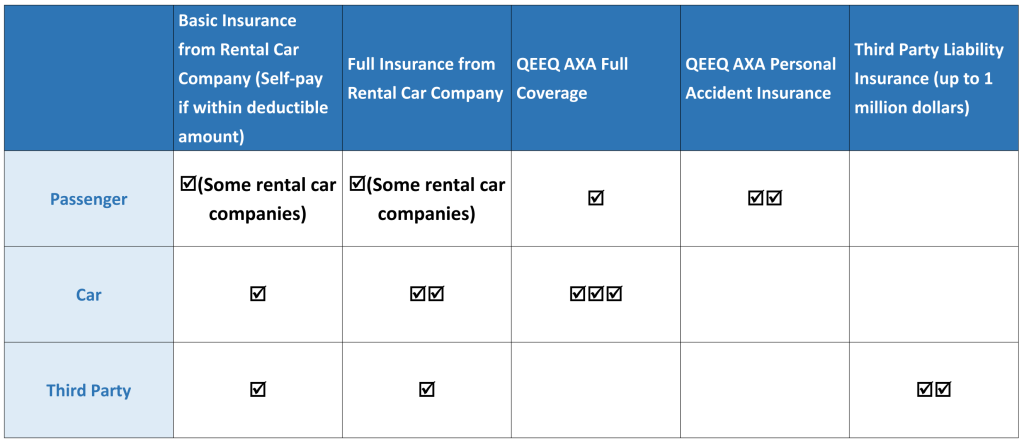
When and How to Purchase Insurance
There are two ways to obtain insurance: one is to purchase insurance when booking the car online; the other is to purchase insurance at the local store where the car is rented when picking up the car.
Generally, insurances provided by rental car companies usually has narrower coverage, higher premiums, so purchasing insurance online when booking the car is highly recommended.
How to Choose Insurance
If you are traveling with limited budget, it is better to choose the kind of insurance policy with the most comprehensive coverage. The main reasons are:
- Repairing fee for the car would probably be higher abroad.
- In case of an accident, the medical cost and compensation are very high.
- The wider the coverage, the less the troubles you would deal with, which saves tons of time and energy.
Taking automobile insurance as an instance, comparing to common insurance policies, the most comprehensive insurance coverage, including glasses, tires, chassis protection, and considerations for special road conditions such as sand and rocks, is very necessary, but basic insurance of car rental companies usually does not include full coverage as such.
Picking Up the Car
Check Before Departure
Before proceeding to the car rental shop, make sure you have brought with you all necessary documents for picking up the vehicle, and two international credit cards is recommended to ensure that there is enough credit limit for pre-authorization.
Proceed to the Car Rentals
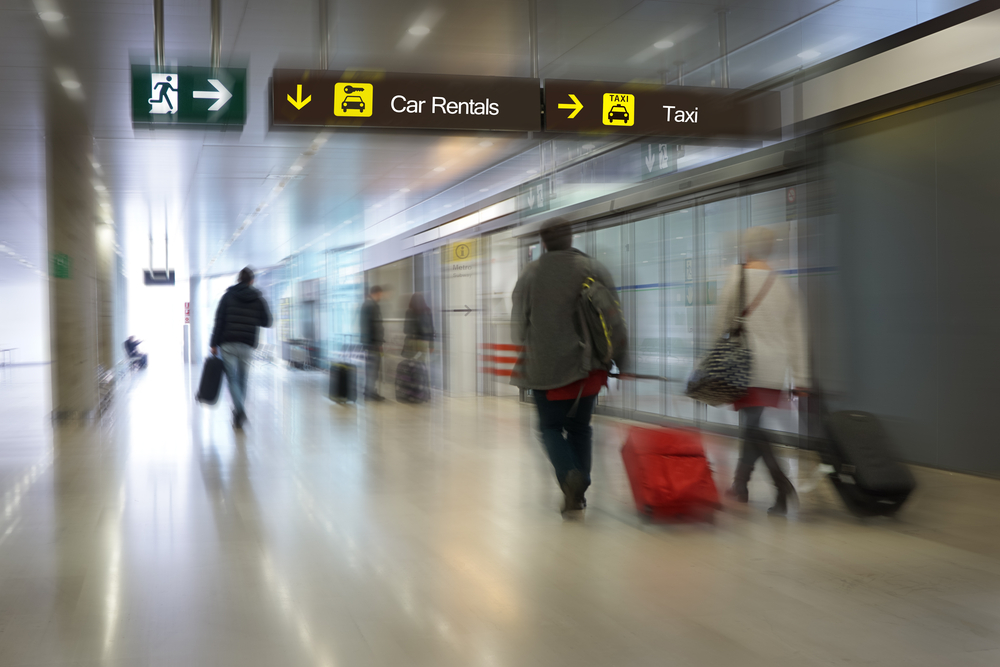
If there is a pickup store nearby, you could just walk there, following signs for airport rental cars.
If the rental car center is far away, there is usually a free shuttle bus bound for the rental car center. Shuttle buses run every 10 minutes approximately, so take the bus when you see the logo of your car rental company.
If the shuttle is not available, you can contact the car rental company and wait for staff member to pick you up at designated location. In case you have difficulty communicating with the store staff, please call QEEQ and we will assist you in English or other languages.
Inspect the Car

When you receive your reserved vehicle, inspect the bodywork for damage. At that time, it’s a good idea to document the entire process with your smartphone camera or take a picture of the dashboard. Because if you forgot to check the condition of your vehicle before departure, you may be charged for wronged damage repairs when you return it.
Payment
 Payment is due on the day of the rental unless you are paying online or purchasing a tour package.
Payment is due on the day of the rental unless you are paying online or purchasing a tour package.
Insurance is usually included in the rental price, but some car rental companies offer paid options for more comprehensive coverage.
Last but not least, keep all contracts and documents safe for possible further usage. Once you have received your keys, check the seat heights, mirror positions, secure child seats, and then you are ready to go!
Traffic Rules and Signs
Traffic Rules
- Right-Side Driving and Overtaking

In Portugal, vehicles drive on the right side. Overtaking is done on the left side. After overtaking, drivers should promptly return to the right lane and not occupy the overtaking lane for an extended time.
- Traffic Signals Rules
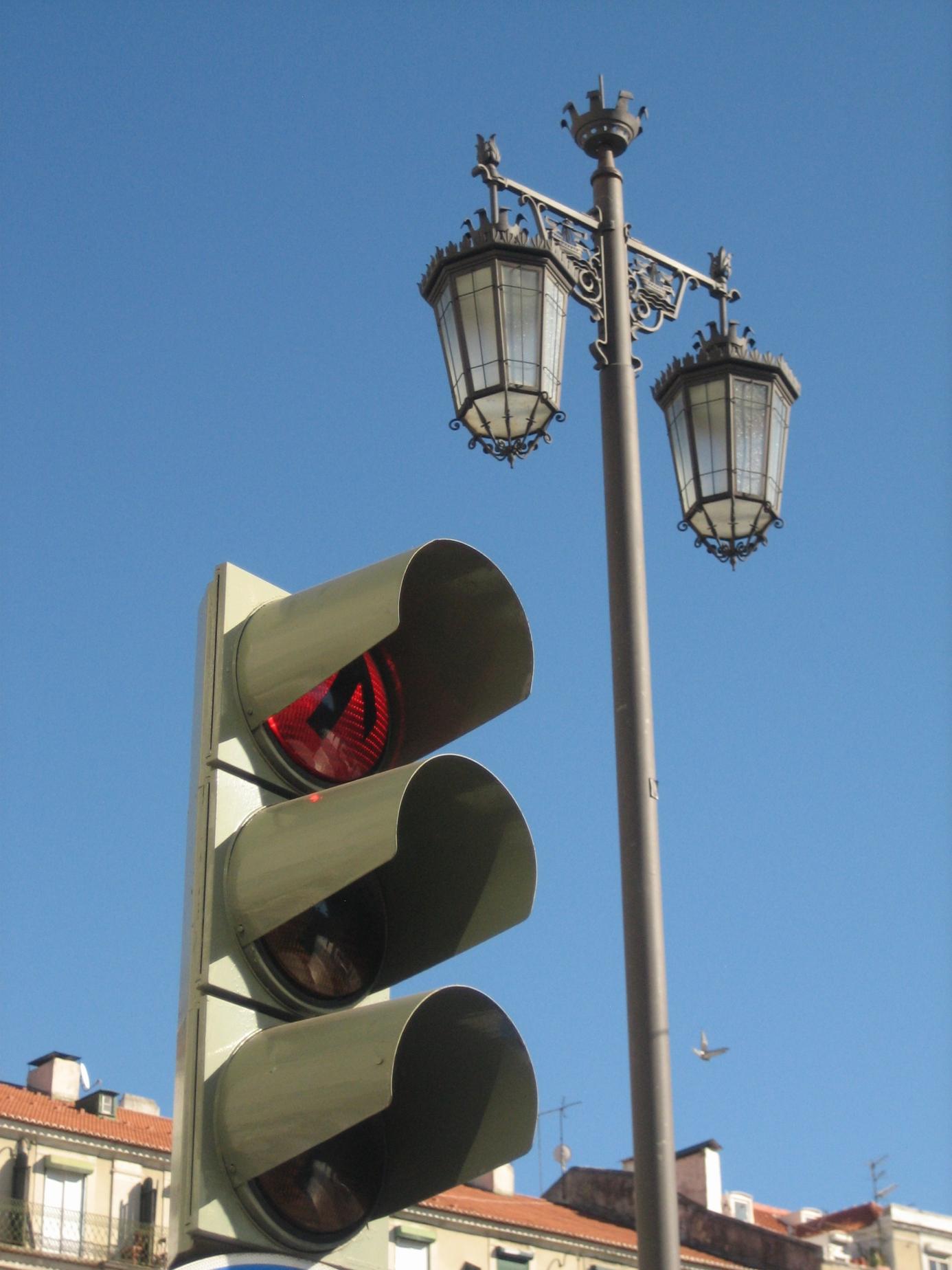
Without specific signal indications, it is prohibited to turn right on a red light. Some traffic lights have right-turn arrows; in such cases, follow the green right-turn signal to proceed right.
- Priority Rules

Pedestrians always have the right of way, regardless of circumstances. Additionally, larger vehicles typically have priority, with main roads and vehicles approaching from the right taking precedence in most situations.
- Passenger Safety
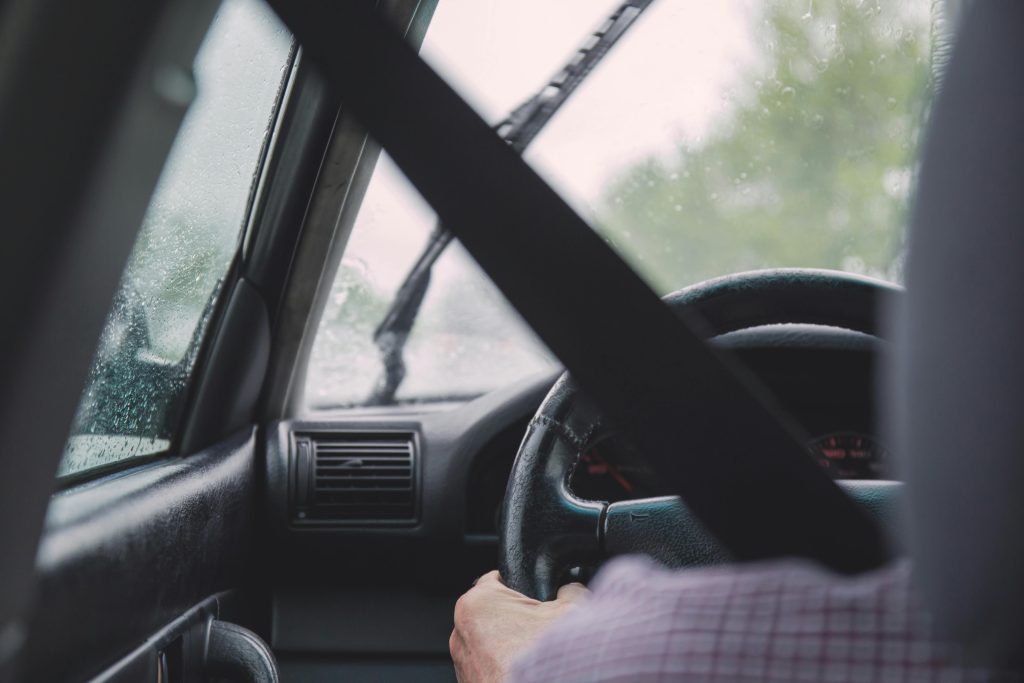
To ensure safety, children under 12 are not permitted in the front seat, and those under 11 must be secured in child safety seats. Everyone in the vehicle is required to wear seatbelts at all times.
- Speed Limits
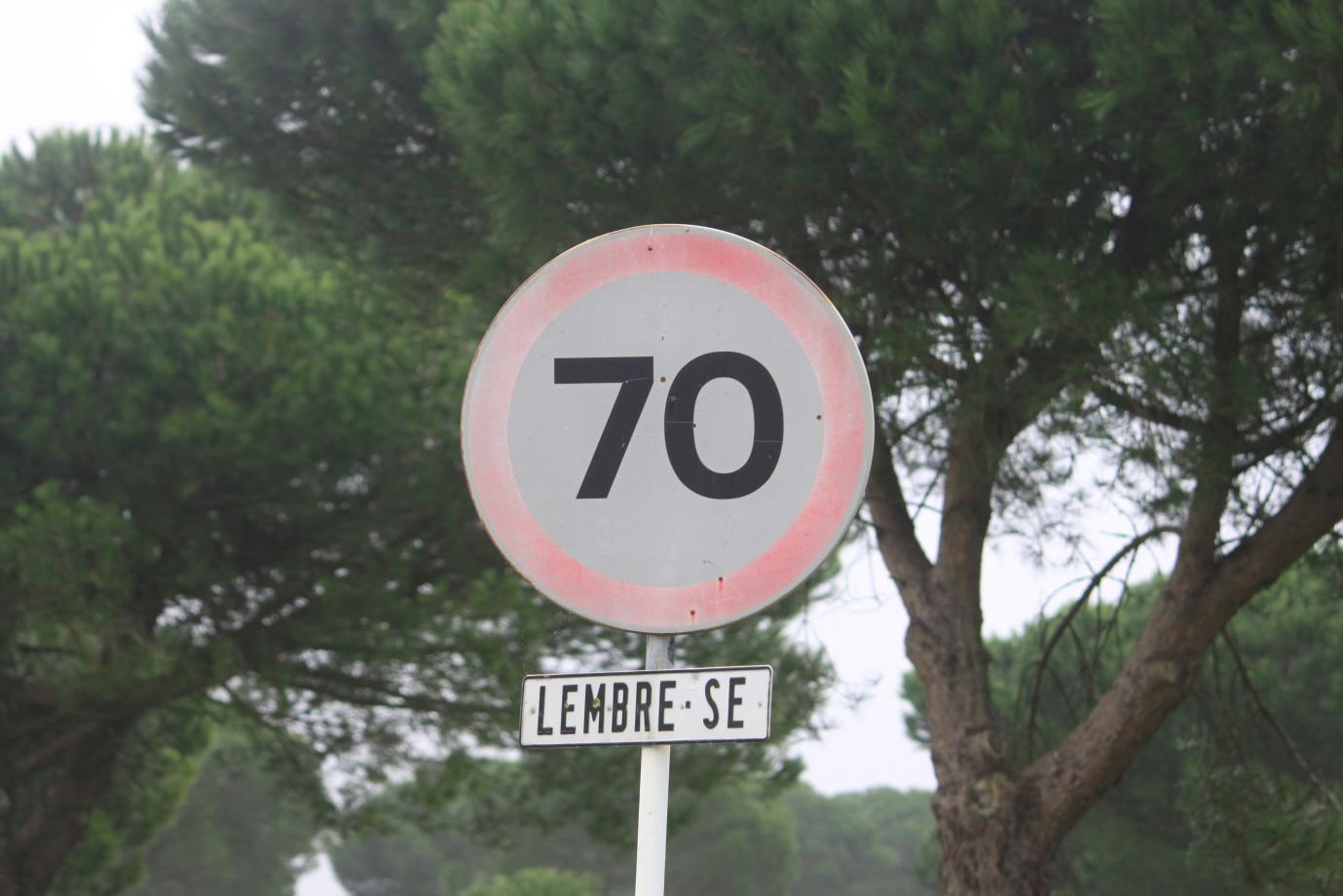
The speed limit on highways is 120 km/h, on expressways limited to motor vehicles is 100 km/h, on general roads is 90 km/h, and in urban areas is 50 km/h. In urban areas, exceeding the speed limit by up to 20 km/h can result in fines ranging from 60 to 300 euros, with higher fines for greater excess speeds.
In addition, in Lisbon, the traffic police have set up automatic speed control and braking systems on various roads. If a vehicle exceeds the speed limit, the traffic lights will turn red about 200 meters ahead, automatically signaling the driver to slow down.
- Hi-Vis Vest Requirement
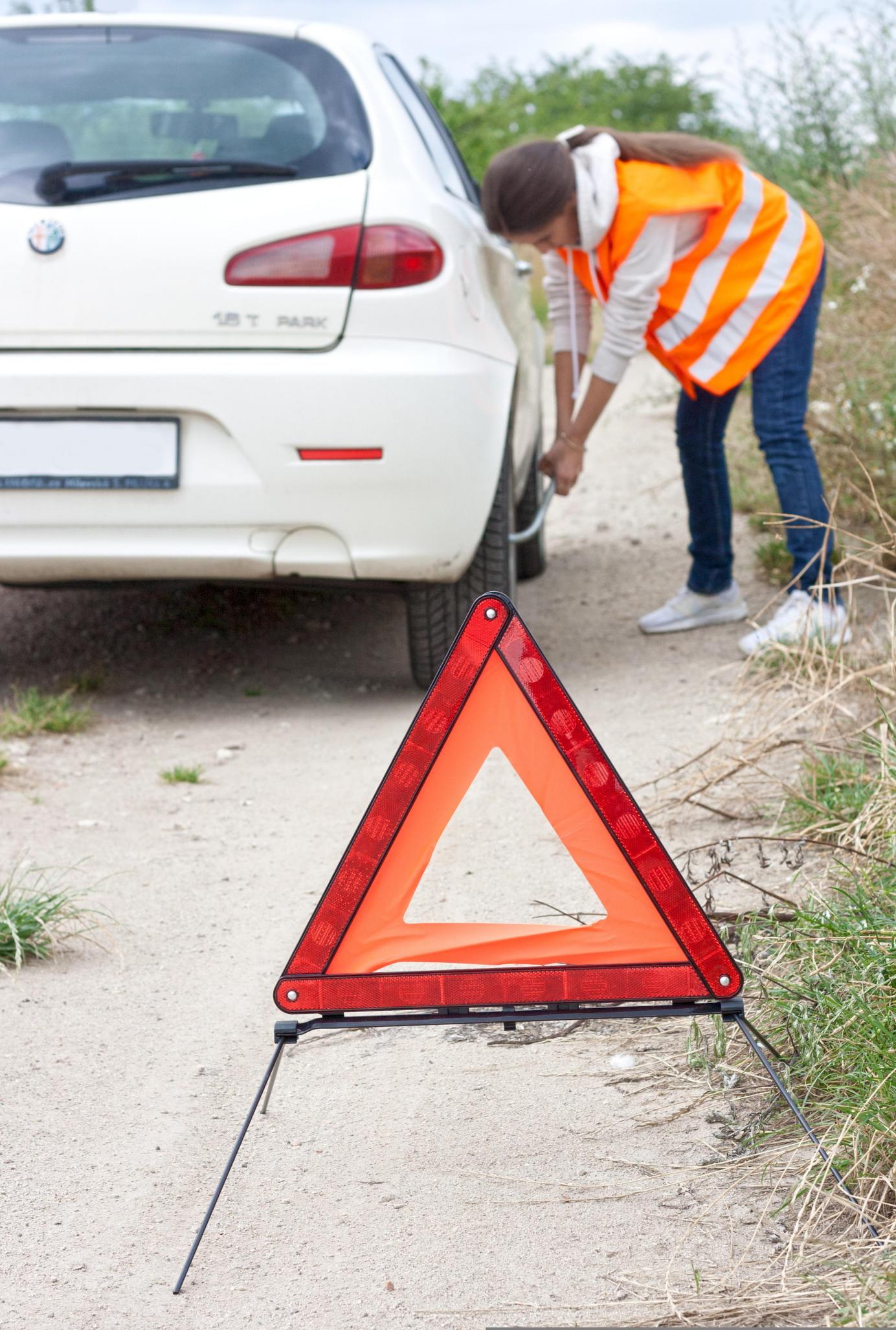
If a driver exits the vehicle at the roadside, they must wear a hi-vis vest; failing to do so can result in fines up to 600 euros. Rental companies typically provide these vests.
Fees and Equipment Usage
- Highway Toll Fees
All highways in Portugal charge fees, which vary by section and can reach a maximum of 20 euros. Apart from traditional cash/credit card payment methods, some highways only accept electronic payments.
- Electronic Toll Equipment
Drivers on self-drive tours can rent temporary “Via Verde” tourist electronic toll systems. Usage charges are deducted directly from the account based on travel distance. Rental companies typically offer these for rent, or they can be obtained from EasyToll service points.

Signs
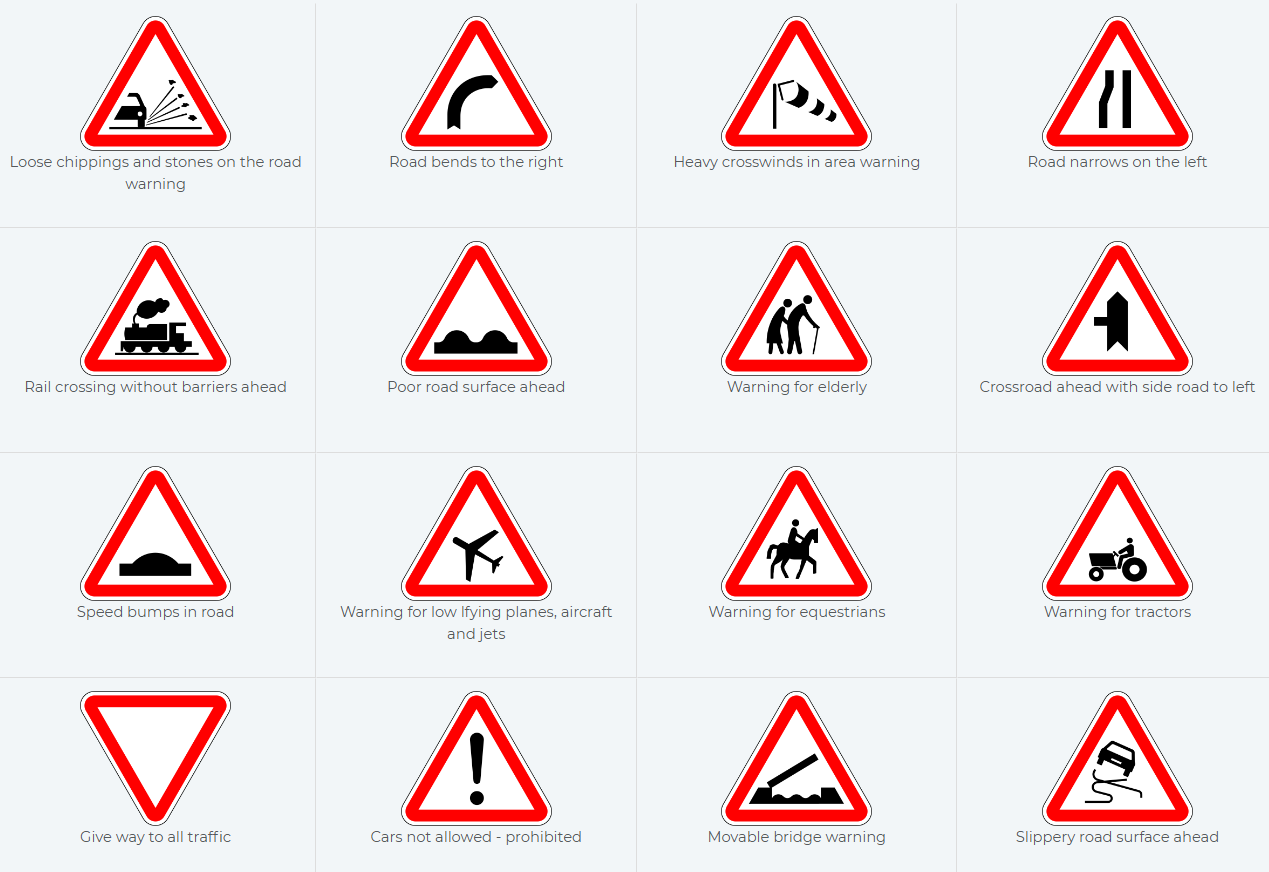
For more road signs in Portugal, please refer to:
Road and Traffic Signs in Portugal – What You Need to Know (rhinocarhire.com)
Fueling
- Fuel Price
Expect to pay higher prices for fuel in Portugal compared to other regions. Diesel is typically about 10% to 15% cheaper than gasoline, making it a more budget-friendly choice.
- Self-Service Fueling
Most gas stations in Portugal operate on a self-service basis due to high labor costs. You’ll need to pump your own fuel. Some stations require payment before filling up, while at others, you can pay after refueling.
- How to Refuel
Simply lift the nozzle and fill your tank. The pump display shows the quantity and cost as you go. After refueling, go inside the store, give your pump number to the attendant, and settle the bill.
- Fuel Options
You’ll find several types at the pump: Diesel e+ (standard diesel), Diesel e+10 (premium diesel), Efitec 95 (95-octane gasoline), and Efitec 98 (98-octane gasoline).
Parking Guidelines
- City Parking Hassles
Finding parking in Portuguese cities is a challenge. Free spots are rare, and metered spaces usually cost around €3 per hour.
- Using Meters
Estimate your parking duration, pay at the meter, and display the ticket on your dashboard for inspection.
- No-Parking Zones
Steer clear of areas marked by yellow or red lines, within 5 meters of intersections, 25 meters before and 5 meters after bus stops, and 6 meters near railway crossings. Avoid parking in resident-only spaces, on sidewalks, or in disabled spots unless authorized, to prevent fines or towing.
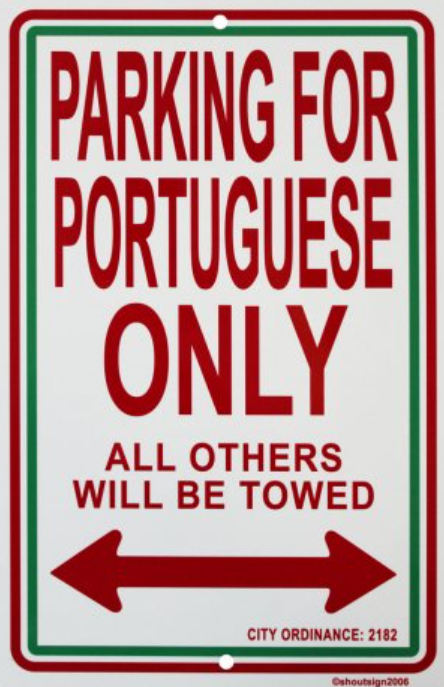
- Fines for Violations
Parking violations can lead to fines ranging from €30 to €250.
Accident Handling
If you are involved in a traffic accident, do not panic. Check whether the passengers are injured, help yourself and seek help from passersby. Emergency contacts are available at any time.
- Emergency services (police, fire, ambulance): 112
- Embassy Numbers by Country: https://www.embassypages.com/
- Roadside Assistance Numbers: +351 21 294 9294
- You can also call your car rental company:
For the rental company’s phone, please refer to your rental confirmation.
Here are the steps to handle different types of accidents:
Minor Collisions
- Ensure everyone’s safety.
- Move the vehicle to the side of the road to avoid obstructing traffic.
- Call 112 to report the accident.
- Take photos or videos of the vehicle’s condition.
- Have the police document the accident and keep the accident report.
- Contact the rental company and your insurance provider.
Vehicle Break-Ins or Theft
- Call 112 to report the incident.
- Have the police document the incident.
- File an insurance claim.
- Verify the information.
- Receive compensation.
Vehicle Breakdown
- Open the car’s trunk and hood.
- Hang a white object on the door handle to signal for help.
- Call the rental company.
- The rental company will dispatch staff for towing or repairs.
- If the rental company cannot resolve the issue, ask the police for towing assistance. Repair costs can be high, so having full insurance is important.
Car Return Process
Important Reminders
After your enjoyable road trip, it’s essential to return the vehicle on time. If you have any questions or need assistance, you can contact the 24-hour customer service hotline.
Car Return Tips
- Refuel Before Returning
If your rental agreement requires a full tank upon return, make sure to refuel within 5 kilometers of the drop-off location and keep the receipt to show the rental staff.
- Keep the Car Clean
Return the car in a clean condition to avoid cleaning fees. Note that smoking in the car may also result in additional charges.
- Reconcile the Fee
When you return the car, the staff will inspect it and provide a final invoice. Carefully review the invoice and address any discrepancies immediately or contact customer service for clarification.
- Keep the Contract and Document
Retain the rental agreement and receipts after returning the car for future reference.
Early or Late Return
- Early Returns
Returning the car early usually does not result in a refund for unused days.
- Late Returns
If you need to return the car late, call the rental location in advance to get approval and confirm any additional charges.
After-Hours Returns
If you can’t return the car during business hours, check if the rental location allows after-hours returns. If permitted,
- Park in the designated area
- Lock the car
- Take photos of the fuel gauge, odometer, and car exterior
- Drop the keys in the key/drop-off box
Note that you are responsible for the car until the rental location reopens. To avoid issues, it’s best to return the car when staff are present.
Help after Trip
Traffic Citation
How to Pay Fine Ticket:
- Online payment is the most convenient. There is a payment web site attached on the ticket, follow the instructions to enter the ticket serial number and then add your credit card information to pay the fine. Please mind the due date, otherwise you would pay a late fee.
- If you could not pay right away, tell the rental company, and the company could charge your credit card directly, although there is usually a commission.
- If there are no violations during the rental period, the deposit will be automatically unfrozen and refunded to the main driver’s credit card within a month.
Insurance Claim
If you bought a full coverage insurance, you would receive a fast claim settlement. The following documents should be prepared:
- Passport
- Driver’s License
- Credit Card Checkback History
- The Car Rental Contract
- Car Damage Deduction Bill
For more detailed information, check the terms and conditions of insurance company: term (qeeq.com)
Unknown Charges after Trip
If you received an unexpected deduction when you return to your home country, it might be that your violation fee is paid by the car rental company, but usually the deduction amount will be more expensive than the violation fee because that includes the management fee charged by the car rental company. If you don’t know what the violation was, you can contact our customer service for help.
Classic Routes
- Algarve
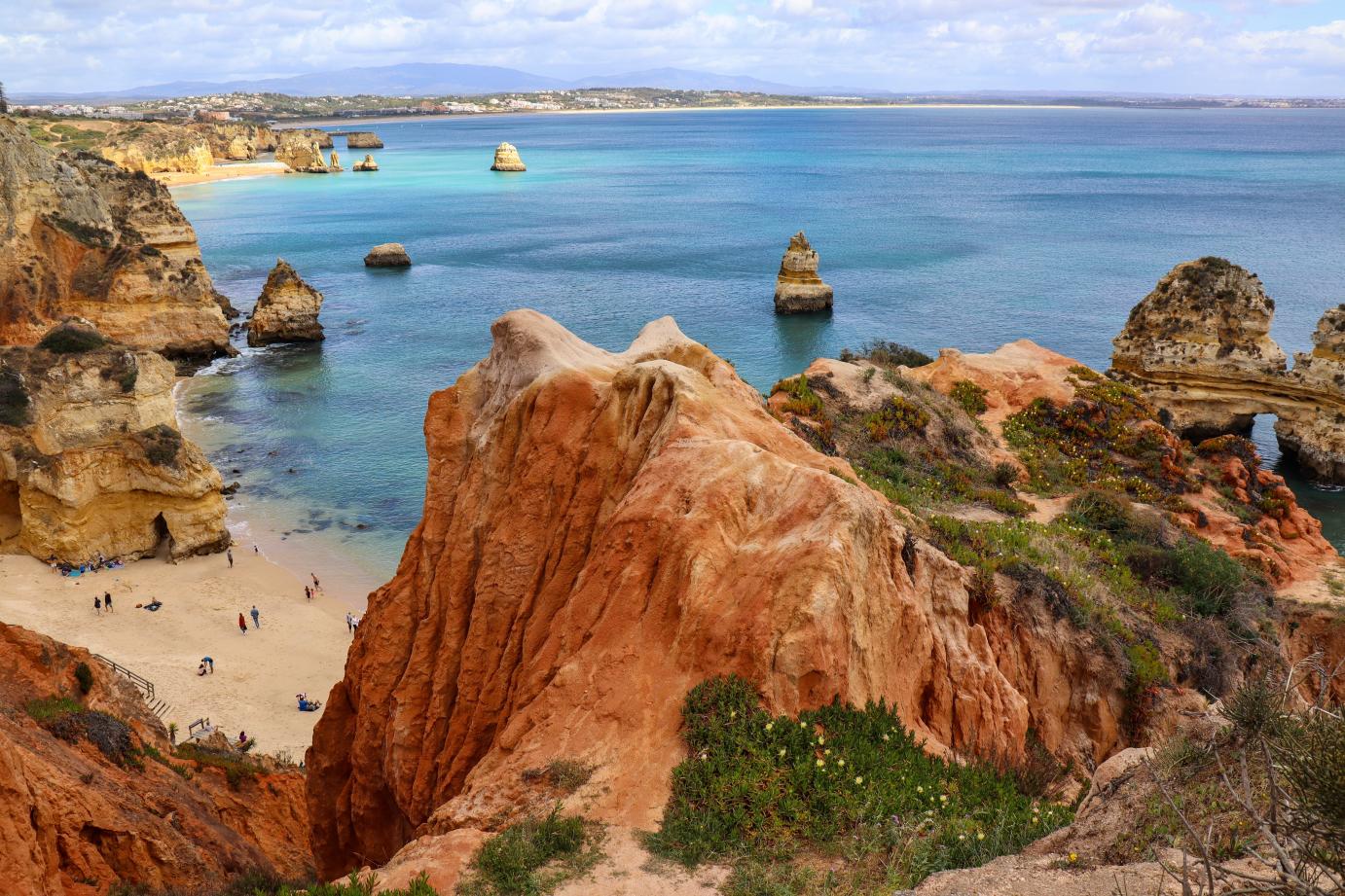
Algarve, located in the southernmost part of Portugal, invites travelers on a self-driving journey through its breathtaking coastal landscapes and rich cultural heritage. Starting in Faro, travelers can enjoy the scenic beauty of Carvoeiro, famous for its cliffs and stunning beaches. A short drive reveals the natural wonder of the Benagil Cave, where sunlight streams dramatically through its dome. The route continues to Lagos, offering expansive views where remarkable cliffs meet clear waters. Further along, the historic Sagres Fortress in Sagres stands overlooking the coast at Europe’s southwestern tip. Driving north leads to the wild charm of Costa Vicentina’s unspoiled beaches. Enjoy a relaxing stop at a local café, experiencing Portuguese coffee alongside ocean views. Before returning to Faro, a detour to the Monchique Mountains allows a visit to the Foia viewpoint, providing panoramic views of the Algarve’s diverse landscapes and distant sea.
- Douro Valley
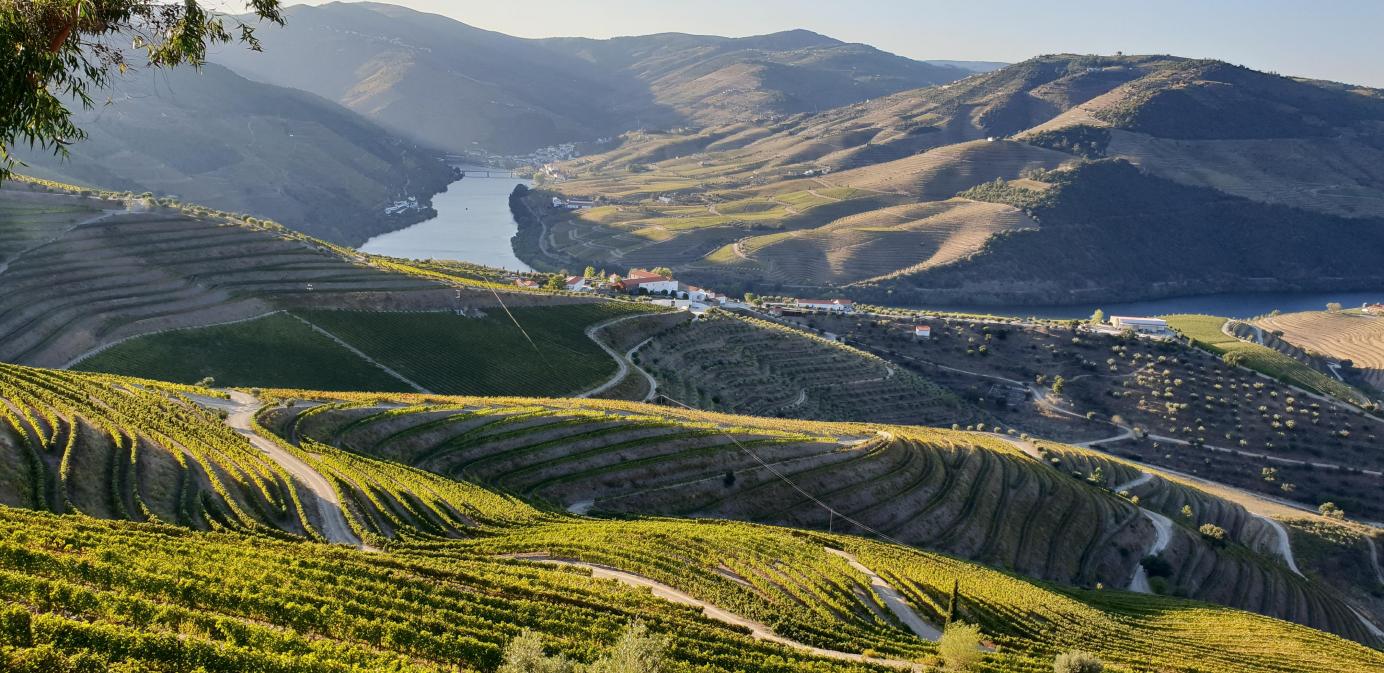
Douro Valley, nestled in the heart of Portugal, is famed for its stunning landscapes and renowned wine culture. This premier wine region along the Douro River boasts terraced vineyards and quintas, offering a paradise for wine lovers and those seeking natural beauty intertwined with cultural depth. The journey begins in Porto, where historical charm and the views from Dom Luís I Bridge set the stage. Traveling along the scenic N108 leads to Quinta da Pacheca, known for Port wine tastings and wine-making traditions. Peso da Régua reveals the valley’s rich history through the Douro Museum. In Pinhão, visitors find azulejo-tiled railway stations and can enjoy river cruises. Quinta do Seixo nearby provides exquisite wines and breathtaking vistas. The trip concludes at the São Leonardo de Galafura viewpoint, offering panoramic views of the dramatic landscape, perfecting a memorable experience in one of Portugal’s iconic wine regions.
- Lisbon
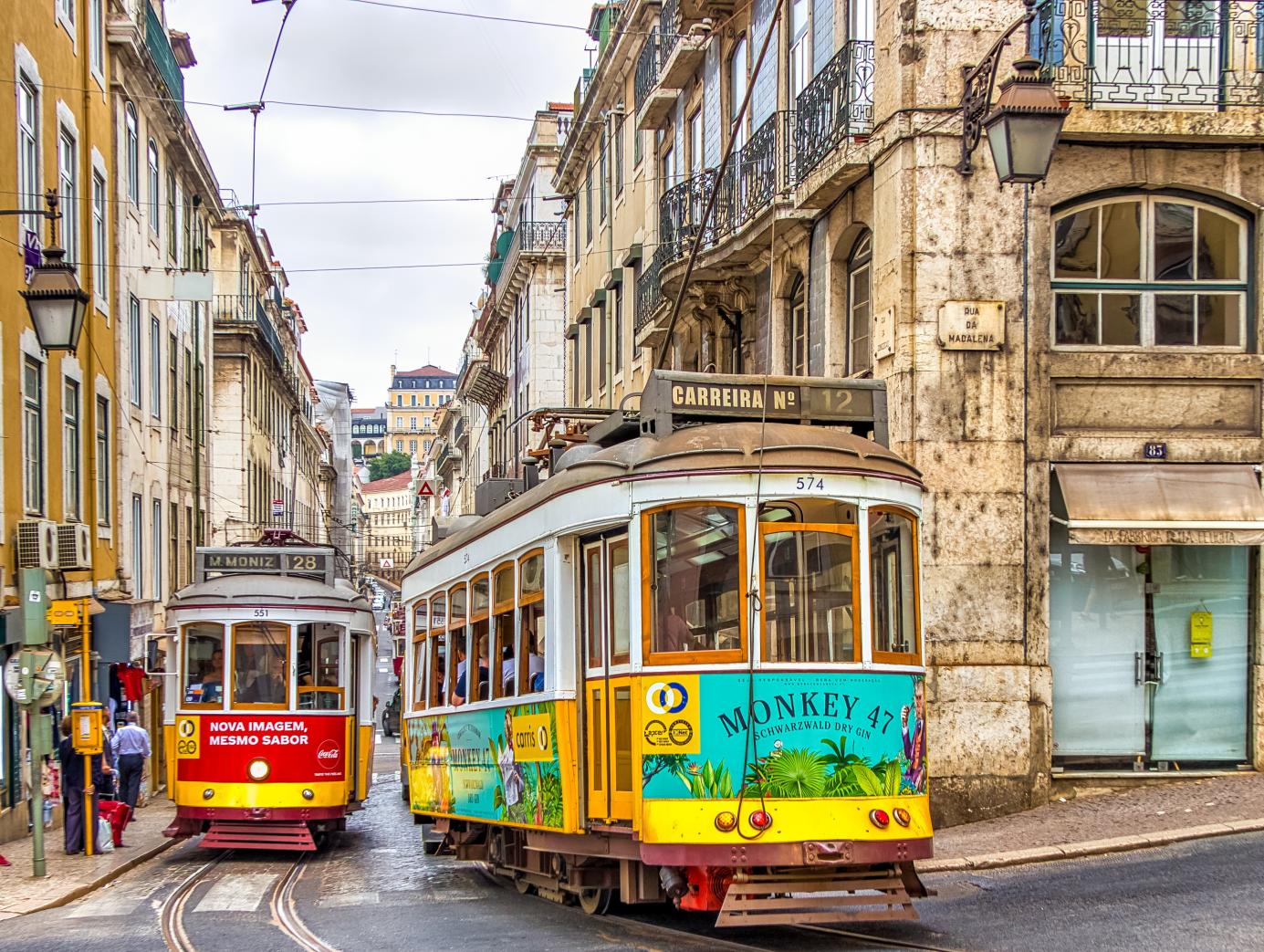
Set against the backdrop of Portugal’s western coastline, Lisbon is a city that effortlessly combines its storied history with a modern pulse. The city is marked by vibrant neighborhoods and stunning architecture, such as the Jerónimos Monastery, a UNESCO World Heritage site that reflects the grandeur of the Age of Discovery. In the Alfama district, the maze of narrow streets is filled with the soulful strains of Fado music, offering a glimpse into Lisbon’s rich cultural tapestry. From Lisbon, the road unfolds to Sintra, where the whimsical Pena Palace and the mysterious Quinta da Regaleira await amid lush hills. Following the coast, Cascais offers stunning ocean views and the chance to enjoy fresh seafood. Returning to the city, crossing the 25 de Abril Bridge leads to Cristo Rei, where sweeping vistas of Lisbon can be enjoyed. The modern energy of the city is on display in Parque das Nações and the expansive Oceanário, which showcases Lisbon’s forward-looking spirit.
- Madeira
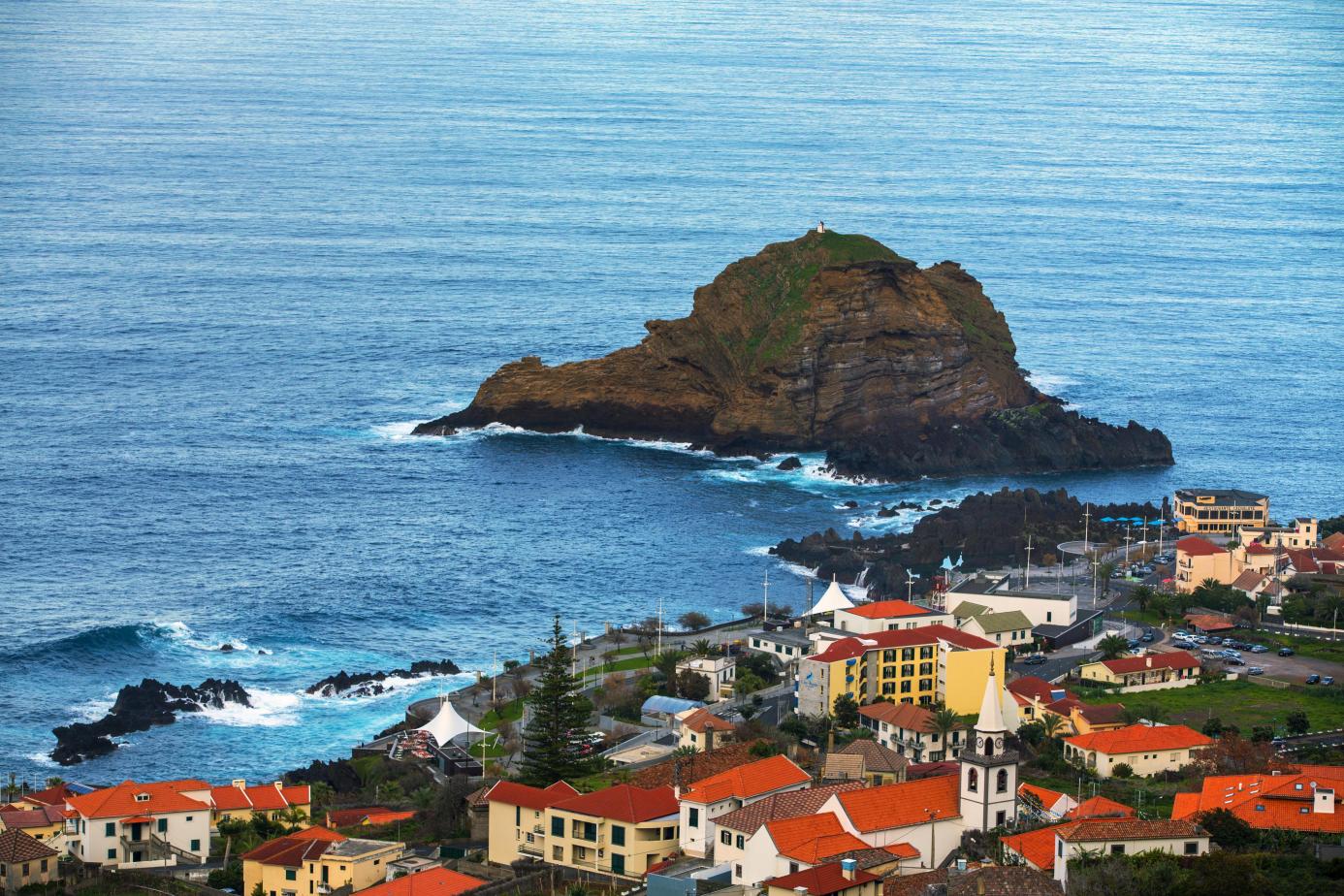
Known as the “Garden of the Atlantic,” Madeira offers an enriching road trip for those eager to explore. Start in Funchal, enjoying its Old Town and botanical gardens. Head west to Cabo Girão, one of Europe’s highest sea cliffs, featuring stunning ocean views. Visit Curral das Freiras for its serene valley setting and continue to Porto Moniz, famous for natural volcanic pools. In the east, explore Santana’s traditional houses and marvel at the lush Laurisilva Forest, a UNESCO site. As you traverse Madeira, the island’s breathtaking landscapes and cultural richness come together to create lasting impressions on every traveler.
Useful Website and Numbers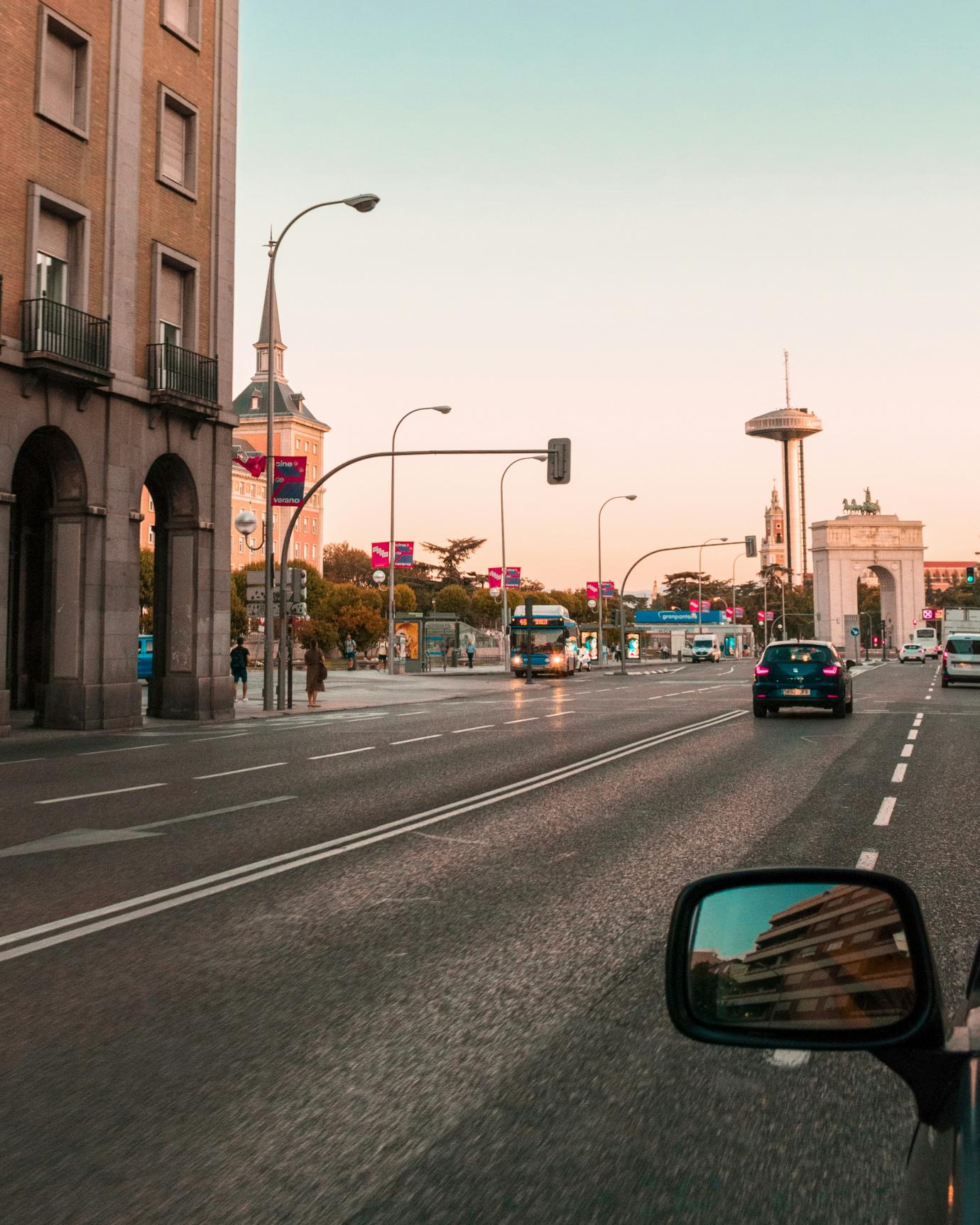
- Portugal’s official tourism website: Homepage | www.visitportugal.com
- Emergency services (police, fire, ambulance): 112
- Embassy Numbers by Country: https://www.embassypages.com/
- Roadside Assistance Numbers: +351 21 294 9294
- You can also call your car rental company:
For the rental company’s phone, please refer to your rental confirmation.